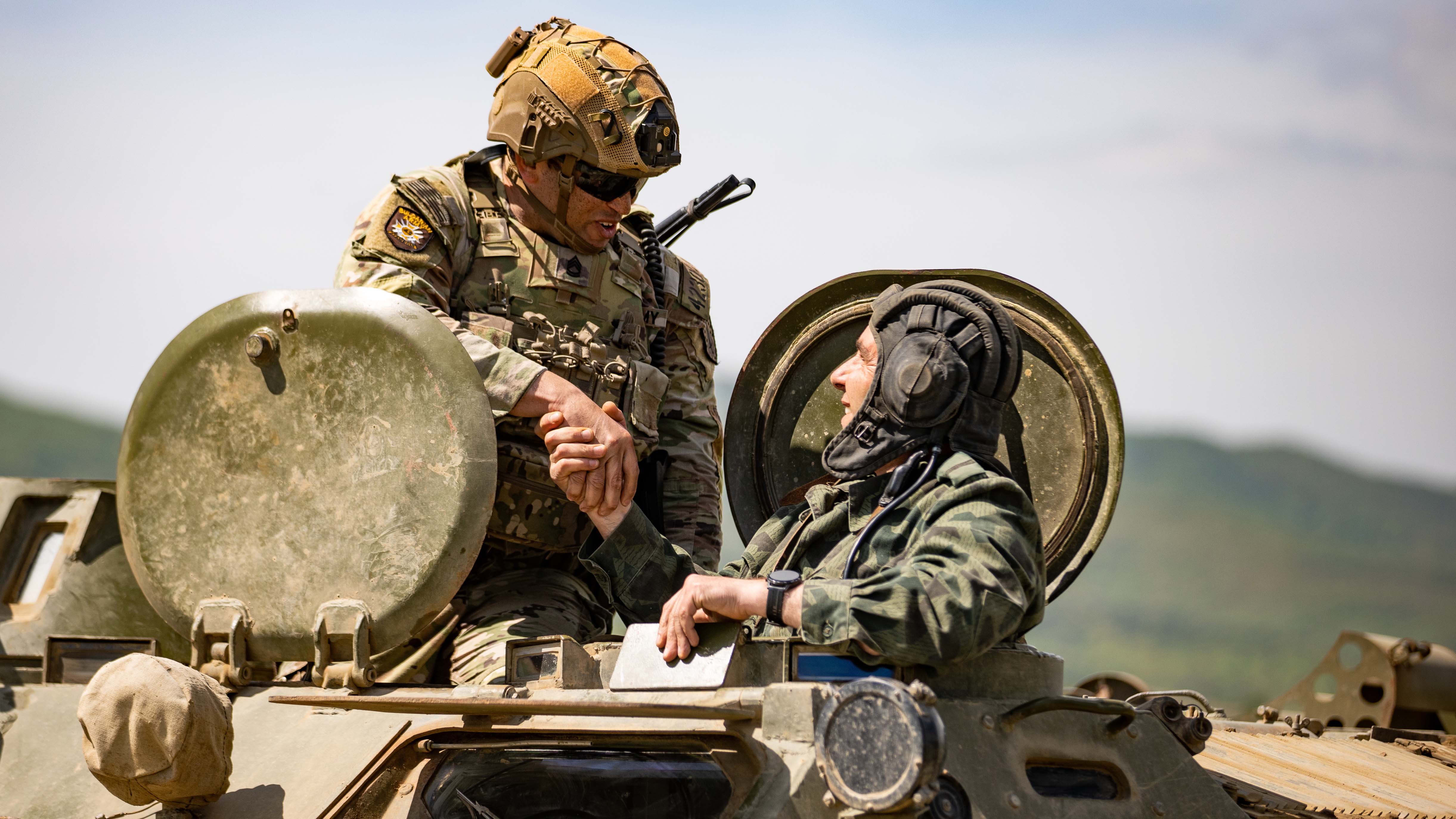SFABs Extend Army Presence in Europe, Indo-Pacific
SFABs Extend Army Presence in Europe, Indo-Pacific

The Army’s security force assistance brigades are helping the service extend its reach and presence around the globe, particularly in Europe and the Indo-Pacific.
The 4th Security Force Assistance Brigade maintains a presence from the Baltics to the Black Sea and focuses on “interoperability amongst NATO allies” and “building capability and capacity” with them, said Col. Robert Born, the brigade commander. The brigade currently has 19 teams of military advisers, who are specially trained to work with partners and allies, in 10 countries in Europe, he said.
“Through our persistent presence, we are able to develop shared understanding, and that shared understanding enables trust amongst allies,” Born said during a Sept. 22 media roundtable. “It also allows us to identify changing conditions and emerging opportunities because we can demonstrate the agility to respond to those opportunities and be in the right place at the right time.”
The Army has six security force assistance brigades—five in the Regular Army and one in the Army National Guard. These teams are regionally aligned, except for the Guard’s 54th SFAB, which is “globally focused.” The brigades were created to reduce the burden on brigade combat teams and free them to focus on fighting near-peer threats.
Born said the U.S. will continue to assist Ukraine with materiel and training as the war continues.
“The U.S. materiel and training support to Ukraine has been critical to their ability to withstand Russian aggression,” he said. “[The] 4th SFAB advisers have supported training to Ukrainian Armed Forces outside of Ukraine, and the plan now is to continue that until we were given instructions to change the mission.”
In the Indo-Pacific, the 5th SFAB has been busy, with 20 teams in 14 locations in the region. The Army’s partnerships throughout the region have only deepened in the face of the COVID-19 pandemic and as Russia wages war in Ukraine.
“A lot of our partners have recognized and seen what has been displayed on the world stage,” said Col. Jonathan Chung, the brigade commander. “COVID and the discussions they’ve seen … about what was happening in Ukraine was an opportunity to increase our level of partnership and commitment to what we’re doing with our partners in the region.”
The partnerships fostered by the 5th SFAB are its best defense against evolving threats in the region, Chung said during a separate media roundtable.
“The greatest counterweight to any … threat or any security cooperation challenge in this area is building this network of allies and partners,” he said. “The way that we end up doing this is [through] a persistent presence of building a relationship in the human terrain.”

